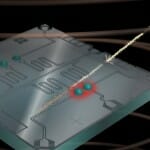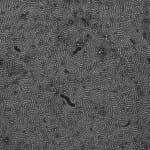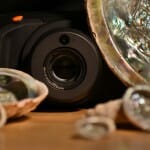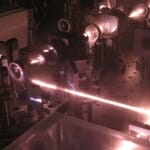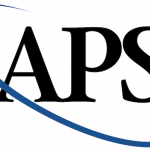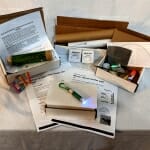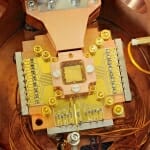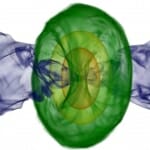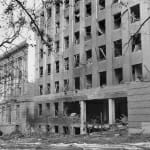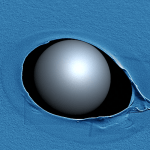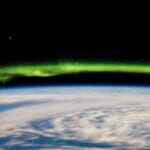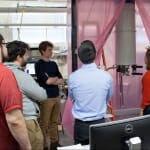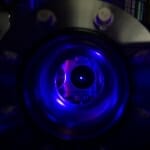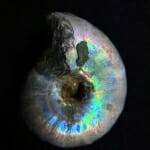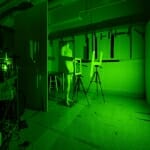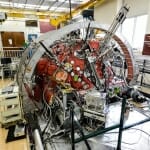Tag Physics
Nuclear engineering research and education pioneer Max Carbon dies at 99
As founding chair of the Department of Nuclear Engineering, Carbon authored "Nuclear Power: Villain or Victim? Our Most Misunderstood Source of Electricity." Read More
Correlated errors in quantum computers emphasize need for design changes
UW researchers have found evidence that errors are correlated across an entire superconducting quantum computing chip — highlighting a problem to address in the quest for fault-tolerant quantum computers. Read More
Flexible, easy-to-scale nanoribbons move graphene toward use in tech applications
Silicon-based fiber optics are currently the best structures for high-speed, long distance transmissions, but graphene — an all-carbon, ultra-thin and adaptable material — could improve performance even more. Read More
Surprising communication between atoms could improve quantum computing
A group of UW physicists has identified conditions under which relatively distant atoms communicate with each other in ways that had previously only been seen in atoms closer together. Read More
American Physical Society bestows top honors on two UW scientists
Physics professor Vernon Barger won the J.J. Sakurai Prize for Theoretical Particle Physics, and chemistry professor Martin Zanni was the recipient of the Earle K. Plyler Prize for Molecular Spectroscopy & Dynamics. Read More
UW grad student shares hands-on physics, art lessons with local fifth graders
Students took breaks from all-electronic assignments to work with take-home kits that let them explore the physics of light while creating art. Read More
When bomb tore through Sterling Hall 50 years ago, he was inside: ‘I still have flashbacks’
Bill Evans remembers feeling the building shudder, then seeing a wave of dirt and dust blow by a lab door. He immediately reported that something terrible had happened. Read More
Nanomaterial bests all others in blocking speeding projectiles
In the future, these new types of armor could potentially be used as a shield on military vehicles to provide enhanced protection from bullets, as well as on spacecraft to mitigate impacts from meteorite debris. Read More
First cohort of students dives into new physics-quantum computing master’s degree
UW–Madison’s inaugural MS in Physics – Quantum Computing, which addresses a workforce need as the first program of its kind in the U.S., will prime students to enter this rapidly growing field. Read More
UW–Madison physicist awarded Packard Fellowship
Shimon Kolkowitz's research into ultra-precision atomic clocks will test Einstein's general theory of relativity. Read More
Making biominerals: nature’s recipe is old, evolved more than once
In recent years, scientists have teased out many of the secrets of biomineralization, the process by which sea urchins grow spines, mollusks build their shells… Read More
Lessons of conventional imaging let scientists see around corners
Scientists from the University of Wisconsin–Madison and the Universidad de Zaragoza in Spain, drawing on the lessons of classical optics, have shown that it is possible to image complex hidden scenes using a projected “virtual camera” to see around barriers. Read More
Researchers recreate the sun’s solar wind and plasma “burps” on Earth
A new study by UW–Madison physicists mimicked solar winds in the lab, confirming how they develop and providing an Earth-bound model for the future study of solar physics. Read More


